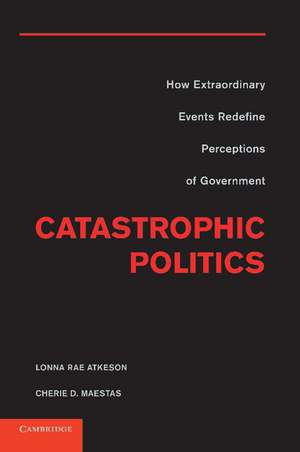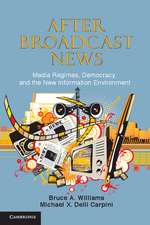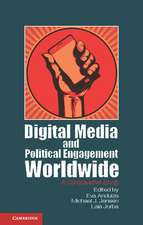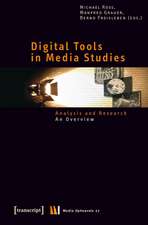Catastrophic Politics: How Extraordinary Events Redefine Perceptions of Government
Autor Lonna Rae Atkeson, Cherie D. Maestasen Limba Engleză Paperback – 5 mar 2014
| Toate formatele și edițiile | Preț | Express |
|---|---|---|
| Paperback (1) | 279.66 lei 6-8 săpt. | |
| Cambridge University Press – 5 mar 2014 | 279.66 lei 6-8 săpt. | |
| Hardback (1) | 738.24 lei 6-8 săpt. | |
| Cambridge University Press – 29 iul 2012 | 738.24 lei 6-8 săpt. |
Preț: 279.66 lei
Nou
Puncte Express: 419
Preț estimativ în valută:
53.54€ • 55.06$ • 44.41£
53.54€ • 55.06$ • 44.41£
Carte tipărită la comandă
Livrare economică 18 februarie-04 martie
Preluare comenzi: 021 569.72.76
Specificații
ISBN-13: 9781107630741
ISBN-10: 1107630746
Pagini: 276
Ilustrații: 16 b/w illus. 36 tables
Dimensiuni: 230 x 150 x 15 mm
Greutate: 0.37 kg
Editura: Cambridge University Press
Colecția Cambridge University Press
Locul publicării:New York, United States
ISBN-10: 1107630746
Pagini: 276
Ilustrații: 16 b/w illus. 36 tables
Dimensiuni: 230 x 150 x 15 mm
Greutate: 0.37 kg
Editura: Cambridge University Press
Colecția Cambridge University Press
Locul publicării:New York, United States
Cuprins
1. Extraordinary events and public opinion; 2. A theoretical framework for systematically examining extraordinary events; 3. The media message environment and the emotional context of Hurricane Katrina; 4. Affective attributions: assigning blame during extraordinary times; 5. Federalism in a multiple message environment: are the appropriate leaders held accountable?; 6. Attributions of blame, political efficiency, and confidence in government; 7. Attributions, emotions, and policy consequences; 8. Extraordinary events and public opinion: some broader perspectives.
Recenzii
'Hurricane Katrina shocked the world. Atkeson and Maestas study how Hurricane Katrina changed American politics, and develop a framework that scholars will use to understand the political consequences of future extraordinary events. This is a fantastic book!' R. Michael Alvarez, California Institute of Technology
'As politicians know, not all politics is routine, yet most studies of public opinion fail to recognize this simple fact. Atkeson and Maestas provide a compelling argument and persuasive evidence about how extraordinary events are unique in their consequences for individuals' civic and partisan attitudes. At a time when laboratory and field experiments have gained such currency in the discipline, it is refreshing to see survey data used so creatively to advance our understanding of contemporary politics and public opinion.' Jan E. Leighley, American University and editor of The Journal of Politics
'Catastrophic Politics is simply groundbreaking. Inspired by Hurricane Katrina, Maestas and Atkeson have collaborated to deliver a highly accessible, methodologically sophisticated examination of the politics of disaster, with significant implications for policy makers. They are able to effectively weave together theories of causal attribution, media effects, and the psychology of emotion to tell a compelling story of how disasters can reshape citizens' views of politics and their government.' Don Haider-Markel, University of Kansas
'As politicians know, not all politics is routine, yet most studies of public opinion fail to recognize this simple fact. Atkeson and Maestas provide a compelling argument and persuasive evidence about how extraordinary events are unique in their consequences for individuals' civic and partisan attitudes. At a time when laboratory and field experiments have gained such currency in the discipline, it is refreshing to see survey data used so creatively to advance our understanding of contemporary politics and public opinion.' Jan E. Leighley, American University and editor of The Journal of Politics
'Catastrophic Politics is simply groundbreaking. Inspired by Hurricane Katrina, Maestas and Atkeson have collaborated to deliver a highly accessible, methodologically sophisticated examination of the politics of disaster, with significant implications for policy makers. They are able to effectively weave together theories of causal attribution, media effects, and the psychology of emotion to tell a compelling story of how disasters can reshape citizens' views of politics and their government.' Don Haider-Markel, University of Kansas
Notă biografică
Descriere
Demonstrates how media information interacts with emotion in shaping a wide range of political opinions about government and political leaders.













